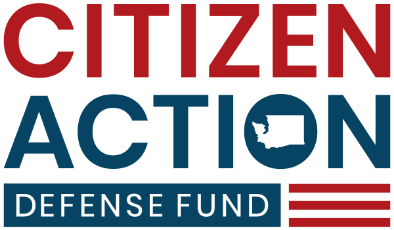
Scared yet?
In April, the U.S. National Parks Service announced that over the next decade or so it will be reintroducing scores of grizzly bears back into North Cascades National Park, with an eventual goal of about 200 through transfer and subsequent natural growth before the end of the century. The news has hikers and campers understandably worried. Grizzles (aka ursus arctos horribilis) are, after all, some of the most vicious mammals on land, and the introduction of even a handful will not go without ecological and human consequences. Perhaps attempting—though poorly—to allay such concerns, one biologist supporting the move, decried “[t]he notion that we need to have completely safe experiences in the wildest areas of this incredible country seems very selfish to me.” Yes, you read that right—we the people of Washington (and tens of thousands of visitors every year) are selfish for not wanting to share the Evergreen’s natural splendor with a beast that can rip us to shreds without a second thought. Judging by the hundreds of public comments, submitted during NPS’s rulemaking process, the new policy does not have many fans among locals. But federal bureaucrats in San Francisco (NPS’s west-coast headquarters) and Washington, D.C. have spoken.
Add to these moral considerations, it is not clear that reintroducing the grizzly to the North Cascades will produce the desired environmental results, and it may even harm long-term conservation efforts by turning off ever more people to the entire enterprise (the obnoxious biologists’ quote above is a ready-made (if unfair) advertisement against conservation). In 2020, the Department of Interior considered reintroduction, but then shelved once officials realized how impactful it would be on local economic and ecological conditions.
But beyond the moral and environmental arguments against reintroduction are the legal and constitutional ones. Granted, at first glance the policy falls within the federal government’s prerogative over national parks, which are federal lands. But it is by no means an absolute power, bounded on all sides by the States’ countervailing sovereign powers, especially their authority—even obligation—to preserve so-called “public trust” lands. That is, the States’ responsibility over commonly held resources, including animals. While these grizzlies will start their resettlement in the North Cascades, there is absolutely no guarantee they will remain within the park’s paper borders. More likely, especially with up to hundreds of grizzlies competing for territory, many will wander onto private and state lands, threatening domesticated and other wild animal populations, including many under Washington’s perennial care.
The complicated overlap and interplay between federal and state powers is one of the more confusing areas of constitutional jurisprudence, but also its most consequential. Despite the federal government’s limitation to enumerated constitutional powers, so much of what it does today is bounded only by what the courts have determined it cannot do in view of the unenumerated powers the Tenth Amendment has retained to the States. This is a poor prescription for drawing bright lines between proper federal and state authority—especially prominent since the 1930s, when the U.S. Supreme Court began ruling (with some recent pullback) that pretty much anything can contribute to interstate commerce, and therefore is subject to federal jurisdiction. Of course, federal authority to return the grizzlies to the North Cascades flows not from its jurisdiction over interstate commerce, but rather from the Constitution’s Property Clause, which empowers Congress “to dispose of and make all needful Rules and Regulations respecting the Territory or other Property belonging to the United States . . .”
Whatever the source of federal power in any given context, state sovereignty everywhere plays a vital limiting role. In Printz v. United States (1997), the U.S. Supreme Court notably held that state and local officials could not be drafted into executing federal laws (of course they cannot actively stand in the way either). Of course, this ethos does not apply perfectly to the grizzlies imbroglio, but it highlights an important normative element of our federal system—that the two layers of government have equal power within their prescribed constitutional roles and that the exercise of federal power cannot shanghai state authority.
The grizzly’s return (which we hope does not prove grizzly) will absolutely impact state commerce and natural resources for the worse, to the point that it will require growing state involvement in what is on paper a purely federal matter. Though the NPS is not seeking to conscript state officials, that will be the inevitable result. Does this mean that the federal government should (or constitutionally must) always restrict itself to actions that do not impact state authority or the exercise thereof? No, of course not. But the limiting principle at the heart of the American version of federalism must mean something. Running roughshod over state and local views in the name of a glorified science experience crosses that line.
Alki,
Sam Spiegelman
